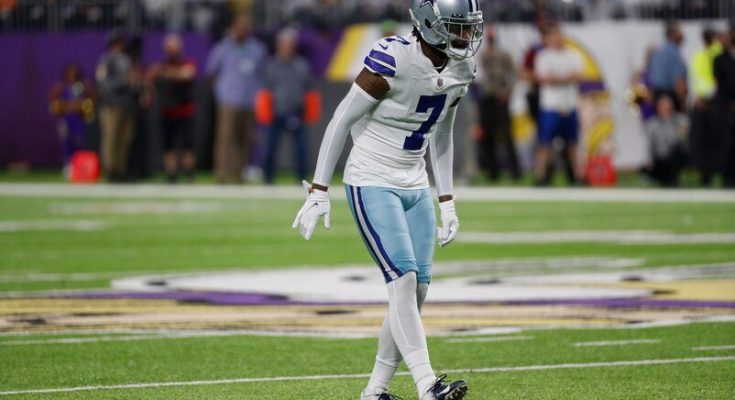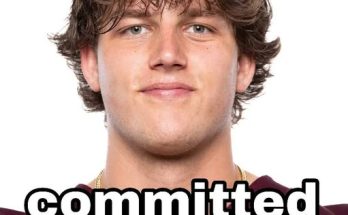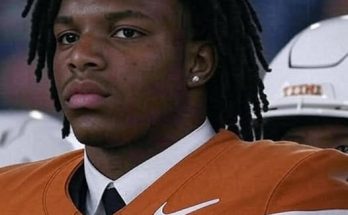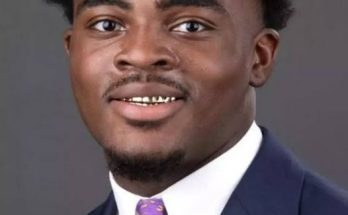Trevon Diggs, one of the NFL’s most electrifying cornerbacks, has found himself in the middle of a financial penalty as the Dallas Cowboys continue to implement a strict approach toward offseason accountability. According to reports from Calvin Watkins, the Cowboys have docked Diggs \$500,000 from his \$9 million base salary after he failed to meet the team’s offseason workout requirements. This isn’t a disciplinary action taken in isolation or meant to question Diggs’ commitment, but rather a consequence of the team’s collective agreement and performance-based criteria that tie into players’ financial packages. What makes this situation particularly intriguing is that Diggs has been rehabbing from a major knee surgery and thus was physically limited in his ability to participate in the team’s offseason program. Still, the Cowboys, like many NFL teams, have thresholds players must meet in terms of presence and engagement, regardless of circumstance. Diggs reportedly participated in fewer than 84% of the team’s required workouts, a figure that triggered the automatic clause in his contract leading to the deduction.
For context, the NFL allows teams to embed workout bonuses and thresholds as part of player contracts. These are usually designed to incentivize offseason participation, build team cohesion, and keep top talent engaged during what is often a voluntary phase of the football calendar. While teams have discretion in enforcing these clauses, the line between encouragement and enforcement can become blurry—especially when the absence is due to injury recovery. In Diggs’ case, he’s been steadily recovering from a torn ACL he suffered early in the 2023 season, which derailed what was expected to be a Pro Bowl-caliber campaign. He has spent much of the offseason undergoing rehabilitation, working with medical staff, and focusing on a strong return for the 2025 campaign. However, because his level of participation in official team activities didn’t meet the required threshold, the clause in his contract activated.
This scenario is sparking debates among Cowboys fans and analysts alike. On one hand, this is business as usual in the NFL, a league that intertwines dollars and discipline with cold efficiency. On the other hand, there’s a human element involved—Diggs isn’t skipping workouts out of apathy or protest. He’s healing, trying to get back to the level that earned him a five-year, \$97 million extension with the Cowboys just a year ago. It’s a tough pill to swallow when rehabbing from a serious injury results in a financial penalty, but that’s the nature of the beast in professional football. Players agree to these terms as part of broader deals, and both parties typically understand the stakes.
From the Cowboys’ perspective, enforcing the clause is less about singling out Diggs and more about maintaining organizational consistency. Every team must strike a balance between making exceptions for key players and holding everyone accountable to the same standard. If they were to overlook Diggs’ absence due to his injury recovery, it could set a precedent for others to expect similar leniency, creating a potential ripple effect throughout the locker room. While it might seem harsh on the surface, the Cowboys are undoubtedly aware of the optics and the long-term implications for team discipline and culture. This also feeds into the larger narrative of Dallas maintaining a business-first mentality as they navigate a complex offseason filled with major contract decisions, looming cap concerns, and the pressure to finally break through in the postseason.
Diggs’ value to the team isn’t in question. Since being drafted in the second round out of Alabama, he’s emerged as one of the league’s top ballhawks. His 11 interceptions in 2021 led the NFL, and his overall presence has been transformative for a Cowboys secondary that, for years, lacked star power. The team invested in him heavily with last year’s extension because they believe in his ability to change the game. Losing him for the majority of the 2023 season was a devastating blow, and the Cowboys’ defense—while still formidable—wasn’t the same without his elite playmaking and instincts. So, it’s safe to say that the \$500,000 deduction isn’t a reflection of doubt or discontent, but simply a contractual stipulation playing out in real-time.
For Diggs, the focus likely remains squarely on his recovery. Returning from a torn ACL is no small feat, especially for a player whose game relies so heavily on lateral quickness, explosiveness, and confidence in one-on-one matchups. The Cowboys have cautiously optimistic expectations that Diggs will be ready to go by the start of the regular season. He’s been making steady progress, according to team reports, and is expected to be a full participant in training camp barring any setbacks. In the big picture, this \$500,000 will not derail Diggs’ relationship with the franchise. Players and teams often navigate financial clauses and penalties as part of the regular course of doing business. However, it does bring attention to the broader topic of how injury recoveries intersect with team expectations, and how players sometimes bear the brunt of inflexible contractual language despite the circumstances.
Across the league, similar situations have occurred. Players on the mend from surgeries or lingering injuries occasionally find themselves short of workout bonuses or off-season incentives. It raises questions about whether the NFL and the NFLPA should explore mechanisms to better protect injured players from such penalties. After all, no one chooses to tear an ACL or undergo months of physical therapy. If anything, the presence of such rigid requirements might push some athletes to participate before they’re physically ready, potentially leading to re-injury. It’s a delicate balance, one that requires ongoing conversation and evolution within the framework of modern NFL contracts.
For Cowboys head coach Mike McCarthy and defensive coordinator Mike Zimmer, the bigger concern is getting Diggs back on the field at full speed. The Cowboys have Super Bowl aspirations, and Diggs is a key piece of the puzzle. His ability to shadow elite receivers, flip the field with turnovers, and lead by example in the secondary makes him irreplaceable. Even though DaRon Bland had a breakout year in 2023, including a record-setting number of pick-sixes, the Cowboys’ defense functions at a higher level when both Diggs and Bland are healthy and available. Add in veterans like Stephon Gilmore, and Dallas boasts one of the more fearsome cornerback groups in the NFL.
Financial penalties or not, the Cowboys will be looking to Diggs for leadership and performance once the season begins. Players, too, tend to have short memories when the games start counting. A half-million dollar deduction in July won’t mean much if Diggs is intercepting passes in January. And for fans, this is less a controversy than a reminder of how tightly regulated and financially intricate the NFL calendar has become. Every day, every meeting, every workout counts—literally and figuratively. For someone like Diggs, who has already proven himself on the field, this is more a contractual footnote than a lasting chapter.
That said, it’s not unreasonable to think that Diggs and his representation might seek more injury-specific clauses or protections in future renegotiations or restructures. The modern athlete is more aware than ever of the business side of sports, and agents are always looking for ways to insulate their clients from unforeseen deductions. As the NFL continues to evolve, we may see more tailored contract structures that offer flexibility for injury recovery without sacrificing key financial guarantees. For now, however, Diggs remains focused on what matters most: getting healthy, staying locked in, and returning to elite form as the Cowboys pursue their long-awaited return to championship relevance.
It’s worth noting that Trevon Diggs has handled the situation with professional poise. No social media outbursts, no cryptic subtweets, no tension with the coaching staff or front office. His silence on the matter may suggest a mature understanding of the business, or perhaps a conscious decision not to make waves while he prepares for a pivotal season in his career. That sort of professionalism is often overlooked but should be applauded in a sports world that increasingly thrives on drama and spectacle. It reflects the kind of locker room leadership and mental toughness that will serve the Cowboys well in 2025.
In the end, the docking of Trevon Diggs’ salary is a reminder that NFL contracts are complex and often unforgiving. They reward performance and participation, but sometimes fail to account for the unpredictable nature of injuries. It’s also a reminder that the Cowboys, despite their talent-laden roster, are holding their players to high standards across the board. As Diggs continues his recovery and readies for a big return, this financial hiccup will likely fade into the background. What will matter most is whether he can step back on the field and once again become the game-changing cornerback the Cowboys are paying him to be.



